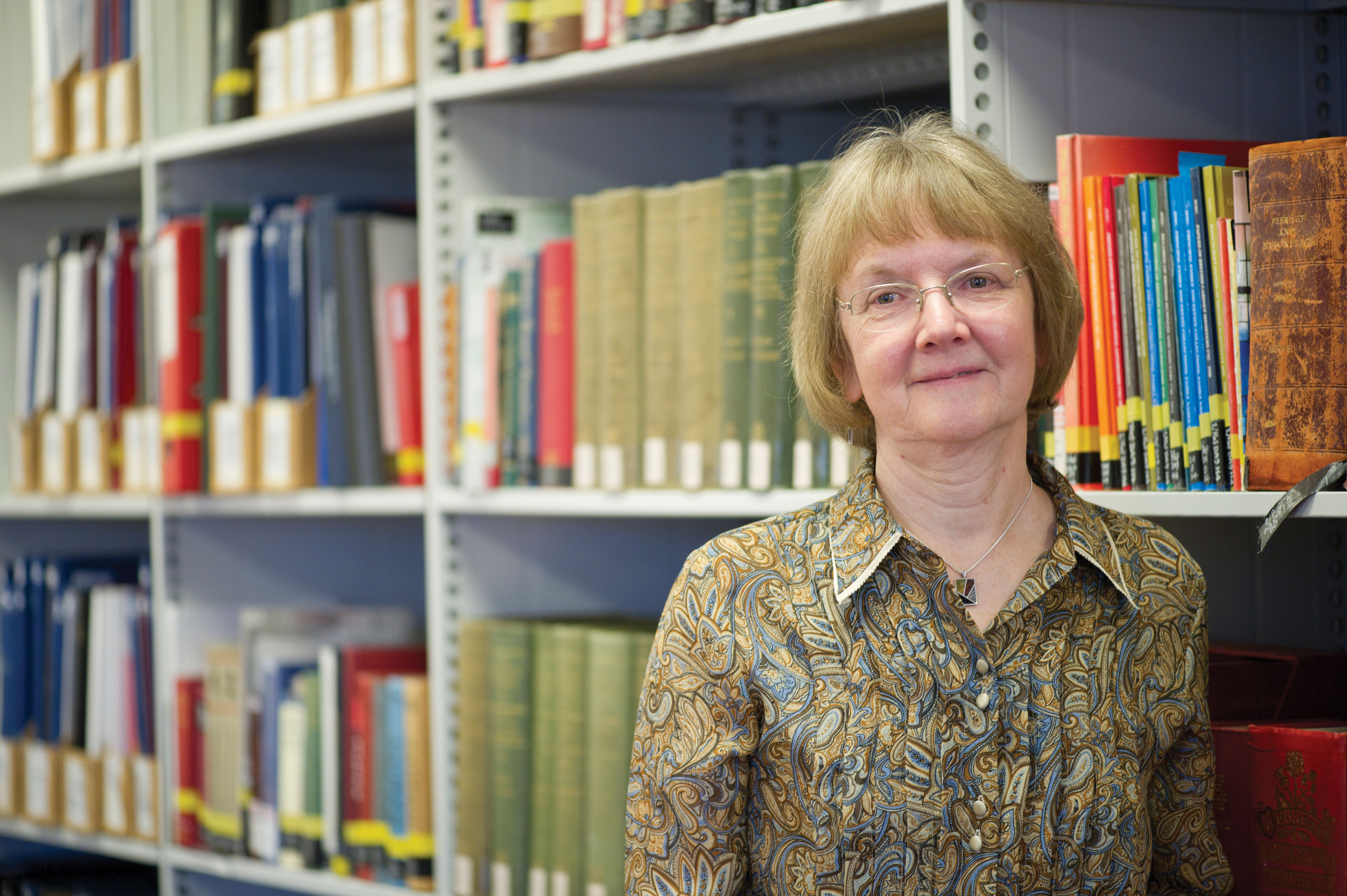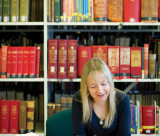
These are a few of my favourite things
December 20th, 2012
Dr Dorothy Johnston is retiring from the University after 25 years of dedicated service. And, as Keeper of Manuscripts and Special Collections, is giving up what surely must be one of the very best job titles going — but that’s not what she will miss the most.
“It was because of its reputation that I wanted to come to Nottingham,” says Dorothy. “It is the collections that have kept me here and I suspect they are what I will miss the most in the future. And of course my colleagues — I’ve worked with some wonderful people and I shall miss them.
“I feel really lucky to have been in the profession at a time when it has moved from mainly servicing academics and graduates to making collections more open for undergraduate students too and now encouraging use by local schools and the wider community.”
Originally from Dublin, Dorothy attended Trinity College Dublin for both her undergraduate and doctoral degrees. She then completed a research placement at Queen’s University Belfast before moving onto a curatorial career. Her first role was as assistant archivist at The University of Aberdeen before moving to Nottingham in 1987. And it is here she has stayed ever since.
“I didn’t expect to stay in one job for 25 years and actually I don’t think that I have. Because Nottingham is very good at change and I think my job has changed pretty well every five to ten years.
“The core thing is absolutely the same: my responsibility is to look after the collections and make them available. But the way in which we do that has changed. When I came it was very much about people in a reading room.”
Now the department focuses on increasing access with a blog, website, digitising manuscripts, staging exhibitions, working with the community… the list goes on.
That’s why it would be easy to presume — after all that’s changed and been achieved — that Dorothy’s retiring because she has done everything she set out to do. That, however, is far from the truth.
“As an archivist, we see amazing things in collections, and there are always items that we would love to be able to work on ourselves. One of my personal career disappointments is I’ve had very little time to do it.
“I don’t expect to completely disappear but I’m going to be rid of the management and rid of the meetings. I’ve worked on a few things while at the University; I’m involved in a research project which concerns natural historian Frances Willughby and that’s a project I’m planning to do more work on after I retire.”
And, in addition to her work on Willughby, there are some projects that are way overdue — 25 years overdue, in fact.
“I’ve got things I worked on in Aberdeen that I never finished,” says Dorothy. “I’m not sure how much I’m going to be in a position to do but I’m certainly hoping to continue to work with manuscripts in some way.”
And so, after a quarter of a century at the University, Dorothy finally feels like it’s time to go.
“I must say it is with considerable regret. And there is so much more I would love to do. But there are options, different ways to go and it is going to be fascinating to see how the department continues to develop. I still think we’re the best kept secret of the University.”
One thing that colleagues throughout the University who have worked with Dorothy would tell you is that she is extremely modest. And so, appropriately, she wants the focus to be on the collections and the future — and not on her.
“I don’t know who will come to replace me,” says Dorothy. “But I feel the collections are fantastic — they’re even richer than they were 25 years ago and there’s a real challenge in making them available for our colleagues for research and to their students.
“And there are all sorts of new audiences who are really keen to get at them. The fact that digital technologies are moving in so many different ways… the opportunities are just limitless.”
Fngers crossed, the University’s next Keeper will be as passionate and driven as their predecessor.
Life of St Zitha, in the Wollaton Library Collection WLC LM 37
“It’s wonderful to discover something unexpected in an archive; it’s what we all hope for. I remember discovering a one-page paper fragment from an unknown English life of the Italian St Zita. It dates from the late 15th century. It was caught up among 17th-century natural history illustrations. Although it has now been published, a puzzle remains as to why it ended up where I found it. It’s intriguing. I still find myself hoping to discover more of the explanation.”
Satirical verses on the union of England and Scotland, Portland Literary Papers, Pw V 1261
“There are over 7,000 entries in our catalogue for the Portland Literary Papers. The collection is one of my favourites. Its strength lies in its series of literary satires of the restoration period and early 18th century, sometimes preserved in fair copies but sometimes scribbled hastily. On one brief scrap of paper there are two anonymous four-line verses referring to the Act of Union of 1707, by which the crowns of England and Scotland were joined.”
The Newcastle Collection Ne C 1708/4
“Political, military and diplomatic papers are fascinating. Often there’s a real sense of urgency and drama. One example I’ve always liked to share is the sketch map which was provided to the authorities in London after Sir John Cope’s humiliating defeat by the Jacobites at Prestonpans in Scotland on 21 September 1745. The Highlanders’ use of a pathway through undefended marsh territory is clearly shown on the plan.”
Leave a Reply
Other Features

Baptism of fire for WW1 curator
Stories from the First World War are being revealed for the first time at a University […]


